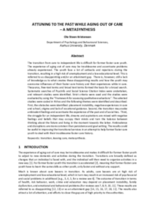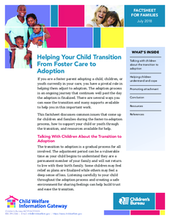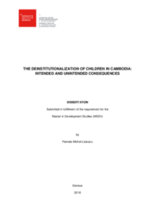Displaying 631 - 640 of 962
The current study tests the ‘overburdening’ hypothesis that examines whether taking on the demands of work and school at the same time could overwhelm and actually hinder the healthy development of youth as they transition from foster care.
This sudy sought to deepen understanding of the underlying patterns of services receipt of the John F. Chafee Foster Care Independence Program (CFCIP) to prepare for youth’s successful transition to adulthood. The authors used multi-level latent class analysis (MLCA) to identify underlying combinations of service receipt that may be influenced by youth-level and state-level characteristics.
Among older youth transitioning from the foster care system, this longitudinal study examined the association of religious and spiritual capital to substance use in the past year at age 19.
This study sought to build on previous work that calls for the need to develop programs to support foster care alumni in higher education and to obtain a better understanding of the characteristics of existing programs and the perceived programmatic and student challenges as reported by program directors and staff, faculty, and researchers.
A First Nations child welfare organization has prioritized further understanding of reunification and parenting, including identification of successes and barriers to reunification, and service needs within communities. These priorities were addressed with a community-based participatory research model and guided by a Research Advisory.
This systematic review sought to address the lack of knowledge as to what creates setbacks and rejections during young people's transition out of care and how the youth may overcome influences of their foster care history and their experiences while in care.
This report looks at the nature and extent of the income and housing challenges faced by Tasmanian families who have had children removed by Child Safety Services, and the impacts those challenges may have on positive family reunification outcomes.
This factsheet for families offers tips for helping a child transition from foster care to adoption.
This paper draws attention to a small sample of policy approaches and developments in meeting the needs of oung people leaving care settings in certain jurisdictions.
This research aims to shed light on the perceived intended and unintended consequences of the deinstitutionalization process in Cambodia.




